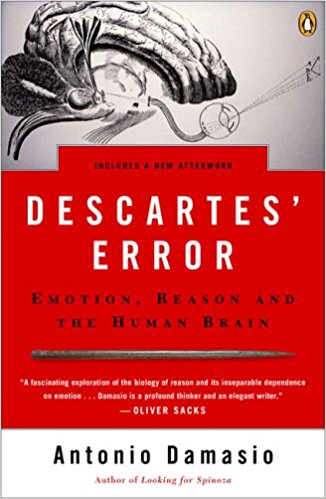The world is human. Most humans live in cities, artificial environments created by us. We walk on streets laid out by humans, work and sleep and cook in buildings, drive in cars or take buses, trains and planes. We talk on cell phones and use the internet. Even those who live in the country live on land which has been altered by agriculture and the pasturing of animals domesticated by humans. The farmer grows wheat which was bred over millenia (or genetically altered recently). The farmer raises animals humans have been raising for thousands of years. We eat the meat of cows and pigs and chicken, we dine on rice or wheat or vegetables we have tended for millenia and which we have bred to suit us.
As individuals, we did not create almost any part of this physical world. We did not invent the techniques for caring for domesticated animals, growing vegetables, or making smart phones.
We live in a physical world created by humans, many of whom are dead. Human life is human in a way that animal life is not animal. Animals have an effect on the environment, but it is minor compared to what humans have done to the world.
And this is just the physical side of the world. Just as important is the world of ideas, of social facts.
Look at the words you are reading right now. You didn’t invent writing, typing, any of these words, or language itself. You spend your life thinking most of your thoughts in a language or languages created by humans, for humans, and mostly by dead humans.
(I am fundraising to determine how much I’ll write this year. If you value my writing and want more of it, please consider donating.)
You almost certainly receive your daily food in exchange for something called money which is probably either plastic woven to look like paper or electronic bits. Money has no intrinsic value, a million dollars in the middle of Antarctica would do nothing for you, most money isn’t even paper any more; you couldn’t even burn it for heat. Yet most of us spend most of our waking days working for someone who gives us “money” and exchange it for most everything else we want.
In times of war and famine, money may lose most of its value. Food, cigarettes, or sex may be worth more. Money’s value is a social fact.
When someone is killed by another human being, whether it was murder or not is a social fact. In war, if a soldier kills someone it is probably not murder. If the state is executing someone it is not murder. When police kill someone it is usually not considered murder. Social facts.
The quality and amount of health care provided to individuals is a social fact. It depends on where they live. In some countries, it depends on how much money they have. In other countries, it depends on how much power they have.
The amount of melanin in someone’s skin is a physical fact. That having a “black” name in America leads to half the interview requests for an identical resume compared to someone with a “white” name is a social fact(x).
Cannabis is almost certainly less physically harmful than tobacco or alcohol, but selling or possessing cannabis is far more likely to get you thrown in jail. In the US, during alcohol prohibition, this was not true. Alcohol is alcohol, its legal status is a social fact.
Social facts rule most of your life. They are layered on top of physical facts and tell you how to understand those facts, and how to act towards them. There are few more consequential decisions than “When should I kill someone?” or “When should someone receive health care and how good should it be? or “Should I hire someone and for how much?”
Not all ideas are social facts. You may believe something “ought” to be true, but often other people do not agree. You think your girlfriend shouldn’t cheat, she doesn’t agree, the state doesn’t care. But if you act on that idea, and so do other people, it’s a social fact. They may call her a cheater, ostracize her, and so on. If no one acts on it, it is not a social fact.
A gang or mafia may believe that their members shouldn’t inform, and they may enforce this as best they can, but obviously the state does not. It is still a social fact if they can make it one, however.
You may also believe in ideas which are contrary to the ideas currently enforced by the state or other people. Perhaps you do not believe in intellectual property. Perhaps you think confessions obtained by torture shouldn’t be used in criminal proceedings. Perhaps you believe that women should or shouldn’t be able to have abortions.
These ideas may fall short of being social facts if no one acts on them. They are just ideas about how the world “ought” to be.
But while social facts are not just ideas, they are still ideas. Unlike the rules of the material universe, they can be changed.
And because they rule our lives, and our societies are built upon them, to change social facts is to change everything.
If you enjoyed this article, and want me to write more, please DONATE or SUBSCRIBE.

 This book is a bit long in the tooth now, having been published in ’95. The role it suggests for emotion in the use of reason is, in generalities, no longer controversial. But it was a landmark book for me, when I read it, and it’s still relevant and worth reading.
This book is a bit long in the tooth now, having been published in ’95. The role it suggests for emotion in the use of reason is, in generalities, no longer controversial. But it was a landmark book for me, when I read it, and it’s still relevant and worth reading.